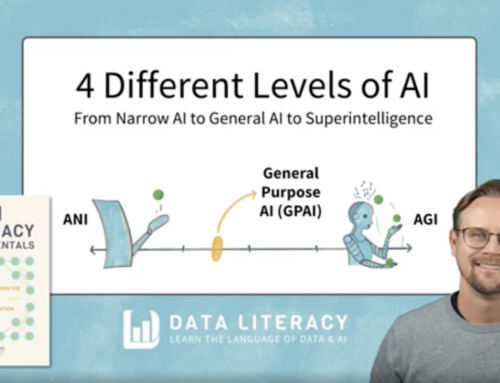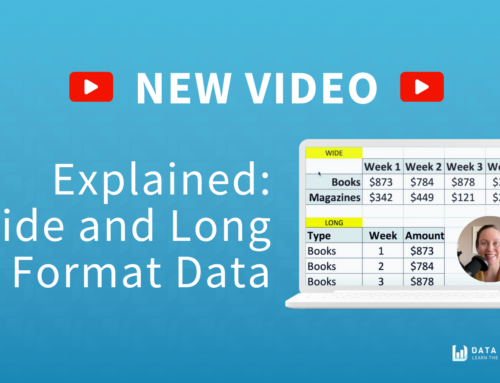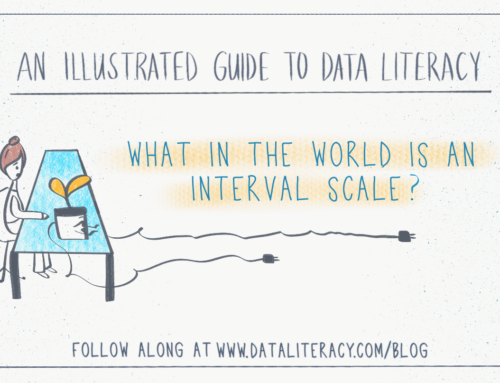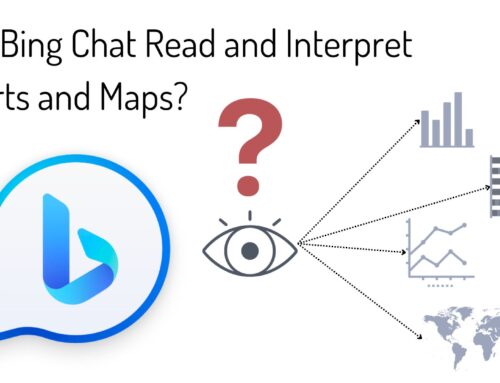Working with Data Professionals (when you aren’t one!)
Part 2: How to Hire a Data Professional

In the first blog of this series, I talked about the different skillsets that a data professional may have and the type of work they could do. In this post, I’m going to spend some time talking about how to hire a data professional. This tends to be a bit tricky if you are not a data professional yourself. You might ask yourself questions like what skillsets do they need to achieve the outcomes you’re looking for? How do you know they can do the things you need them to do? How should you go about interviewing them?
These are questions asked regularly so I’ll try to shine a bit of light onto them. But before that, there is important general information to be aware of when it comes to hiring a data professional.
The author of this series is Anna-Maria Steverson, Content Analytics Manager at Netflix. Anna also teaches our Data Literacy series, and will be leading the live Data Literacy Fundamentals course being offered to the public starting on January 10, 2022. The thoughts she shares in this series come from her own experience working in data roles at Fortune 500 companies.
Things to consider before hiring

The first thing to note is that data professionals often do their best work when they’re part of a larger community of practice for their field. There are always exceptions to this but, in general, it’s not a good investment to hire a data professional as the single individual on your team that works with data. Often the demands that are put on that person are more than one individual can reasonably handle and after some period, they may feel they have no options for career growth or skill development.
This can be offset if the rest of the team is more technical in nature, such as software engineers, but can still prove to be a challenge. The more mismatched the skills of the data professional and the work that needs to be done, the more likely there will be difficulties. As an example, if you hire an experienced data scientist with a strong background in experimentation and most of their daily work consists of pulling together datasets to answer basic business questions, you will probably have a retention problem sooner rather than later.
The second item to note is that data professionals do not come at bargain prices. As an example, salary.com reports that the annual salary for a business intelligence developer, a generalist type data professional role, in the U.S. ranged from $70k (10th percentile) to $119k (90th percentile) with a median of $95k as of December 2021. If you’re looking towards a specialist, such as a Machine Learning Engineer, the median jumps to $122k. Given the expense involved, it’s important that you have a clear plan for the work your new hire will be doing to ensure a return on your investment.
In addition, there is more to getting value from data than hiring a skilled data professional. It may involve developing a clear data strategy, gaining buy-in from the business, securing executive sponsorship, or more. It also will likely require investing in data literacy training for yourself, your peers, or other members of your team to ensure the knowledge gained from the data work is applied. Some of this isn’t necessary if what you’re looking for is someone to build and maintain a standard suite of basic reports. However, if you’re vision goes beyond this, it’s something to keep in mind.
If you are more interested in getting the benefit of advanced data science areas, the best practice is to make the investment to bring in an experienced data leader to build the function out for you. Just as you wouldn’t expect an expert finance leader to directly lead a software engineering team, you shouldn’t expect them to directly lead a data team.
With this general information covered, let’s dig a bit more into the specifics of working through the hiring process.
What skillsets should I hire for?

After considering the above points, this is the next question you may be asking. You need to know what type of work you want them to do, of course, but you also need to acknowledge the reality of what work is possible given the data ecosystem they are coming into. If you are not a data leader with an established team of data professionals, this latter question is of critical importance to avoid missteps.
Let’s say you’re looking to hire one or two data professionals to help build some reports for your departments and maybe help you understand why certain things are happening. You might focus on professionals with strong visualization backgrounds and an impressive portfolio of dashboards they’ve created in the past. However, it’s quite possible that if you’ve never had data professionals working with your department before, you might not have data that is in any shape to build reports off. By bringing in someone who specializes in creating reports and dashboards without a lot of data engineering background, you might be setting them up for failure.
If this is going to be an individual that is working in the business rather than on a dedicated data team, you are going to want to hire a generalist, not a specialist. A generalist will have some data engineering skills, some reporting skills, and some analysis skills. If you’re lucky enough to find a “unicorn”, they’ll also have advanced analytic skills such as machine learning or experimentation. By hiring a generalist, you’ll have end-to-end data ability for the level of data work you’ll likely be doing.
You will also want to put an emphasis on having experience in ambiguous spaces, a great deal of initiative, excellent communication skills with non-technical stakeholders and an entrepreneurial attitude.
To be specific, if you’re looking for a generalist and you are in a company with some established data stores, you will likely be looking for someone with the following technical skills, at a minimum:
- SQL (To build datasets from your data environment)
- Tableau, Power BI or another data visualization/report building tool
- Python or R to programmatically perform analyses (advanced Excel will do in a pinch)
A great deal of curiosity is also very important so the more interest they show in the role, your team, the company, and more, the better. Many questions are a good sign.
How can you be sure they can do the things you need?
Once you have candidates with the technical skills, experience, and “soft” skills that you are looking for, how can you be sure they’ll be able to do what you need them to?
A good practice is a technical screen. This is best conducted by an individual you trust who has the technical skills in question. They could be from another department as it should be a fairly generic screening. Alternatively, there are several companies that provide technical screening services for SQL, Python, and R. While free, public ones aren’t recommended as they are easy to find the answers to online, paid services can be a valuable resource.
For their data visualization and reporting skills, ask for a portfolio of past work they are proud of. They should have several examples that do not reveal any proprietary information about other companies. You can review the examples they provide to get a good feel for whether they are a fit for what you need.
How should you interview them?

Once past the technical screen, the deeper interview process begins. Here is where you will want to look for deeper technical signals as well as the non-technical skills you need in the role. Some common practices outside of normal interview questions include:
- Give a case study to work through live with the interviewer to gain an understanding of how they approach the type of problems you will need them to solve.
- Have a stakeholder give them a typical request and assess their approach for signals they will be a good partner.
- Have them complete a project with a scrubbed dataset.
In all of this, any opportunity you have to involve other data professionals in the process will be to your advantage as they may have more intuition around what to dig deeper on, when the candidate is just repeating jargon, or how much practical experience they actually have
I personally dislike “gotcha” style coding questions or technical questions designed to trip candidates up. I have never found them to be a useful predictor as to how someone will do in the role.
That’s a general overview of things to be on the lookout for. In the next post in the series, I’ll cover managing data professionals.






